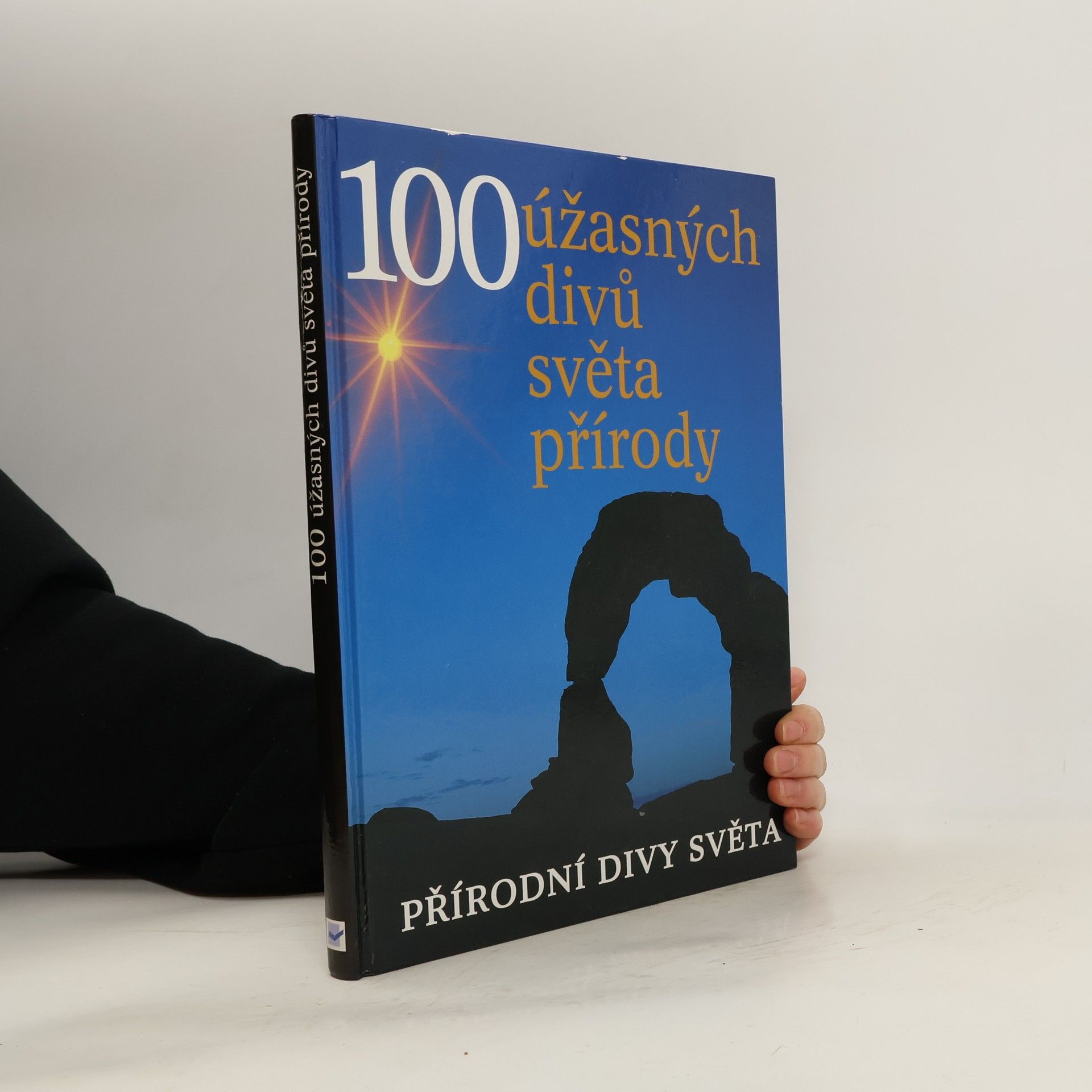100 úžasných divů světa přírody. Přírodní divy světa
- 208 stránek
- 8 hodin čtení
Kniha uvádí a vysvětluje sto úžasných přírodních divů z celého světa od Grónska až po Galapážské ostrovy. Text provázejí krásné barevné ilustrace a mapy.
John Baxter je australský autor, který se proslavil zejména svými poutavými pojednáními o filmu a jeho tvůrcích. Jeho novinářské a filmové začátky v Austrálii ho přivedly k hlubokému zájmu o sedmé umění, což se projevilo v mnoha biografiích filmových osobností a v literární kritice. Po přestěhování do Paříže se jeho psaní rozšířilo o autobiografické prvky, kde zkoumá osobní zkušenosti a krásy města. Baxterův styl je charakteristický svou erudovaností a schopností zachytit podstatu uměleckých děl i osobních prožitků.






Kniha uvádí a vysvětluje sto úžasných přírodních divů z celého světa od Grónska až po Galapážské ostrovy. Text provázejí krásné barevné ilustrace a mapy.
The French may not have invented love but they perfected it, and the laboratory in which they did so was Paris. James Joyce called the city "a lamp for lovers, hung in the wood of the world." From medieval times, Paris has drawn those who wish to experience the limits of love--intellectual, spiritual, carnal. In Love Is in the Air of Paris John Baxter turns the spotlight on some of them, from the medieval troubadors who seduced court ladies with flowery verse to Man Ray, whose camera conferred immortality on his lover and model Kiki, and Serge Gainsbourg and Jane Birkin, who turned their moans of sexual pleasure into music. The grandes horizontales of the belle epoque, accomplished technicians of eroticism who drew the rich and powerful of both sexes to Paris, had their modern incarnation in Gala, who left the bed she shared with poet Paul Éluard and painter Max Ernst to seduce the young Salvador Dalí. Love in Paris, however, can take unexpected forms. Was the devotion to Marcel Proust of his housekeeper Céleste Albaret any less passionate than that of Anne Desclos to Jean Paulhan, for whom she composed "the strangest love letter any man ever received"--the notorious novel Sto
A fascinating exploration of the life of Charles Boyer.
From bestselling Francophile John Baxter, the third book in his Great Parisian Neighborhoods series, offering tourists and locals alike a guided tour of Montparnasse
He was born Allan Konigsberg in the Bronx, but his personal destiny and some of filmdom's most celebrated comedies - Annie Hall, Manhattan, Crimes and Misdemeanors - have made Woody Allen the quintessential New Yorker. This telling, new biography - the first since the tabloids headlined his rift with his long-term mistress, Mia Farrow, and his affair with her adopted daughter, Soon-Yi - tells how a reclusive, melancholy kid achieved unparalleled success as a screenwriter, director, and star. It also explores the real Woody Allen, the critically acclaimed filmmaker from the Upper East Side, and his amusing movie persona of a neurotic and lovable loser. Shrewdly and effectively deconstructing Woody, John Baxter's biography illuminates Allen's preoccupation with sex and mortality, his personal quirks and obsessions, his manipulation of celebrity, and his cinematic achievement as chronicler and court jester of Manhattan's intellectual elite. "A splendidly written, exhaustive account and a major achievement" - The Observer "Astute and highly entertaining biography" - Daily Telegraph "A bracing corrective to the usual po-faced, sycophantic studies of the cult of Woody" - Mail on Sunday "Full of interesting information for cinema enthusiasts" - The Spectator "The saga [of Woody and Mia] makes compulsive reading" - The Guardian
For many years, Saint-Germain-des-Prés has been a stronghold of sans culottes, a refuge to artists, a paradise for bohemians. It's where Marat printed L'Ami du Peuple and Thomas Paine wrote The Rights of Man. Napoleon, Hemingway, and Sartre have all called it home. Descartes is buried there. Now bestselling author and Paris expert John Baxter takes listeners on a narrative tour of Saint-Germain-des-Pres, which is also where Baxter makes his home. Tucked along the shores of the Left Bank, Saint-Germain-des-Pres embodies so much of what makes Paris special. Its cobblestone streets and ancient facades survive to this day, spared from modernization thanks to a quirk in their construction. Traditionally cheap rents attracted outsiders and political dissidents from the days of Robespierre to the student revolts of the 1960s. And its intellectual pedigree boasts such luminaries as Pablo Picasso, Arthur Rimbaud, F. Scott Fitzgerald, Simone de Beauvoir, Gertrude Stein, and Albert Camus. Part-history, part-guidebook, Saint-Germain-des-Pres is a fresh look at one of the City of Light's most iconic quarters, and a delight for new tourists and Paris veterans alike
In the second portrait of his series Great Parisian Neighborhoods, award- winning raconteur John Baxter leads us on a whirlwind tour of Montmartre, the hill-top village that fired the greatest achievements of modern art while also provoking bloody revolution and the sexual misbehavior that made Paris synonymous with sin High on the northern edge of Paris, Montmartre has always attracted bohemians, political radicals, the searchers for artistic inspiration as well as those hungry for pleasure. In its winding, windmill- shadowed streets, which, only fifty years before, saw the anarchist rising of the Commune, Renoir, Picasso and van Gogh seized a similar freedom to remake painting, while, in the tenderloin of Pigalle, Toulouse-Lautrec drew the cancan dancers of the Moulin Rouge, celebrating a hedonism that titillated the world, In Montmartre , bestselling author and IACP Award winner John Baxter lifts the curtain on a district that visitors to Paris seldom see. From the tumbledown workshops of the Bateau Lavoir in which Picasso and Braque created Cubism to Clichy's Cabaret of Nothingness where guests dined at coffins under lamps of human bones, the whole of this mysterious enclave is ours to explore. For visitors and armchair travelers alike, Montmartre captures the excitement and scandal of a fascinating quarter that condenses the elusive perfumes, colors and songs of Paris.
Get swept up in the glitz and glamour of the French Riviera as author and filmmaker John Baxter takes readers on a whirlwind tour through the star-studded cultural history of the Côte d'Azur that's sure to delight travelers, Francophiles, and culture lovers alike. Readers will discover the dramatic lives of the legendary artists, writers, actors, and politicians who frequented the world's most luxurious resort during its golden age. In 25 vivid chapters, Baxter introduces the iconic figures indelibly linked to the South of France—artist Henri Matisse, who lived in Nice for much of his life; F. Scott Fitzgerald, whose Riviera hosts inspired his controversial Tender is the Night; Coco Chanel, who made the Saint-Tropez tan an international fashion statement; and many more. Along the way, Baxter takes readers where few people ever get to go: the alluring world of the perfume industry, into the cars and casinos of Monte Carlo, behind-the-scenes at the Cannes Film Festival, to the villa where Picasso and Cocteau smoked opium, and to the hotel where Joseph Kennedy had an affair with Marlene Dietrich. Then maps and listings show travelers how these luminaries celebrated life and made art amid paradise.
Ever wonder what albums your favourite recording artist listens to and loves Now in this one-of-a-kind reference book more than 100 artists from the worlds of pop, rock, folk, jazz, country, and blues offer their opinions on what moves them to tears of joy or just spends a lot of time on their turntables.